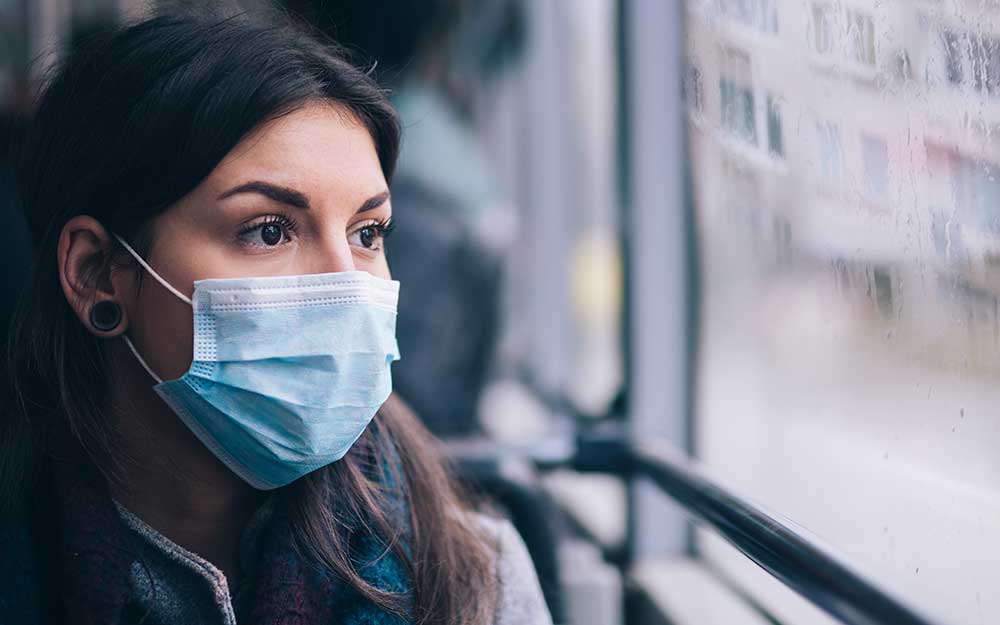Collective Trauma: collaboration becomes critical for mental health professionals

By Susanne Haase
Collective trauma – the psychological reactions by an entire society or group of people to traumatic events such as war, pandemic, or social unrest – is a current reality that few of us have experienced to this degree before. For us as mental health professionals, the ramifications of COVID-19 and other recent circumstances will be felt for years, if not decades.
The effects on our community, clients, and patients are two-fold.
First, collective trauma means that large numbers of people are suffering, collectively. The sheer volume of those needing and seeking mental health services has grown exponentially this year. A recent Kaiser Family Foundation (KFF) poll indicates that nearly half of Americans report the coronavirus crisis is harming their mental health. A federal emergency hotline for people in emotional distress registered an increase of more than 1,000% in April compared to the same period last year. Telehealth services are proliferating, too, which is good news in terms of improving access for rural populations and clients who cannot otherwise readily tap into community or private mental health services. One online therapy provider is reporting a 65% spike in clients since mid-February. Clearly, more Americans need mental health services now.
Services to address anxiety and depression, a rise in domestic violence, substance abuse, and suicide are particularly in demand. Already, the majority of Americans who need mental health services do not receive them. The National Alliance on Mental Illness (NAMI) reports that only 43.3% of adults with mental illness in the U.S. received treatment in 2018. With the increased need resulting from the current trauma, the number of people needing and not getting treatment will continue to climb, which could leave provider organizations overwhelmed by demand and tens of millions of Americans without critical mental health care.
Secondly, collective trauma can result in those affected needing more intensive treatment. For many clients with pre-existing anxiety and depression, COVID-19 is likely exacerbating their symptoms with job loss, isolation, fear, economic strain, according to the KFF. Clients who were managing their symptoms with medication and once- or twice-weekly outpatient therapy may be unable to cope and require a higher level of care.
Now more than ever, mental health service providers need reliable referral sources where these clients can access the level of care that their illness necessitates. Some require inpatient or residential resources, but many can benefit from an evidence-based outpatient care with intensive outpatient (IOP) or partial hospitalization (PHP) specialized treatment targeting anxiety, depression, and other specific disorders. PHP and IOP offer a higher dose of treatment with individual and group therapy three to six hours a day, five days a week. Outpatient providers and other healthcare professionals can serve as a source of information for their clients and refer them to a higher or different level of care when warranted.
How Rogers is addressing the needs of the Miami community
Rogers Behavioral Health is one organization with a 112-year history of effectively treating obsessive-compulsive disorder (OCD) at these higher levels of care, and more recently, anxiety, depression, bipolar disorder, and general mental illness. Based in Wisconsin with clinics around the country, Rogers opened its first fully bilingual clinic in Miami, Florida in early 2019 to serve both the Hispanic community and Spanish-speaking populations, as well as English-speaking adults and children. Seventy percent of Miami’s population is Hispanic, and Hispanics represent 23% of the state’s population. Providers across the country serving Hispanic clients with specialized needs for multilingual and culturally competent care can refer them to Rogers when their conditions necessitate more intensive treatment and dedicated interdisciplinary teams that can help clients navigate their healing in these highly stressful times of collective trauma.
We have been able to continue to serve patients in Miami during the pandemic when Rogers was able to offer a virtual treatment option. As with our traditional PHP and IOP patients, those seeking treatment through Rogers Connect Care generally return to their outpatient providers for ongoing treatment. As the impact of the pandemic and other traumatic events take their toll on mental health, this higher level of care will be more critical than ever.
Learn more about our Miami clinic at rogersbh.org/Miami or call directly at 844-468-9696 or 305-929-0600. Your clients can request a free confidential screening and you may refer someone here or by calling the clinic.
You may also be interested in sharing information about our free virtual Family Support Groups, which are open to members of the community on the first and third Wednesdays of each month from noon to 1:30 pm for families with loved ones suffering from anxiety, OCD and/or depression and other mood disorders. You can reach out to the clinic or email our outreach representative Tiffany Krause at tiffany.krause@rogersbh.org.
About the author
Maria Susanne Haase (Susanne) holds an MSEd in mental health counseling from University of Miami. Susanne joined Rogers for the opening of the Miami clinic in early 2019. Originally from Ecuador, she is bi-lingual in Spanish and English and also speaks French and Portuguese. Before transitioning to mental health counseling, Susanne had a long corporate career with a Fortune 500 company directing corporate communications in their Latin America and Caribbean region. She is also an executive coach focused on leadership and loves to write. She is a strong advocate for access to mental health services, particularly for the Hispanic and other underserved communities.
